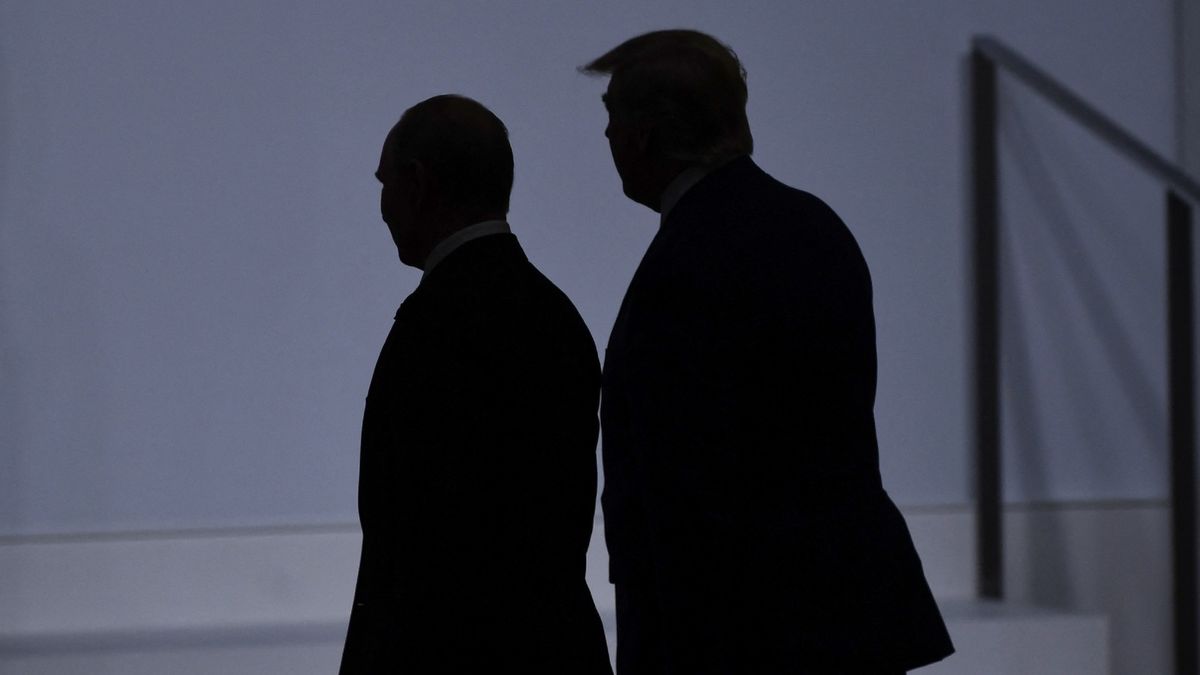Is Donald Trump a Russian agent?

```html
The Curious Case of Trump and Russia: An Unlikely Alliance?
Unprecedented Pro-Russian Policies
Donald Trump's stance towards Russia has been nothing short of extraordinary. From seemingly demanding nothing from Putin while making concessions for Ukraine, to publicly questioning Zelenskyy's animosity towards the Russian leader, Trump's actions have raised eyebrows and fueled speculation.
These actions include dismissing the possibility of Ukraine joining NATO, suggesting territorial concessions, siding with Russia in UN votes concerning the invasion, and even restoring diplomatic ties with Moscow. This pattern of behavior has led many to question the nature of Trump's relationship with Putin.
Is Trump a Russian Asset?
The question of whether Trump is a Russian "asset" has been circulating for years, voiced by figures ranging from Tory MP Graham Stuart to Democrat senator Jeff Merkley and even retired US intelligence officers. These concerns are fueled by persistent rumors and Trump's own pronouncements.
One such rumor, originating from a former KGB officer, alleges Trump was recruited in 1987 under the codename "Krasnov." Other claims suggest extensive surveillance by Czechoslovakian intelligence and the KGB following Trump's marriage to Ivana Zelníčková. While evidence for these claims remains flimsy, the rumors persist.
The Steele Dossier and Other Allegations
Perhaps the most well-known collection of allegations comes from the Steele Dossier, compiled by a former MI6 Russia desk head. The dossier, which raised alarms within US intelligence, claimed that the Russian government worked to get Trump elected in 2016 and that Trump associates met with Russian agents.
While some claims in the dossier were later corroborated by the Mueller report, the most salacious allegations, including the existence of compromising material held by the FSB, remain unverified.
Financial Ties to Russia
Beyond political intrigue, Trump's financial history reveals a complex relationship with Russia. While his attempts to expand his business empire into Russia yielded limited success, Russian money played a crucial role in rescuing his struggling businesses in the 1990s.
The involvement of figures like Felix Sater, a Russian-American mobster, and Trump's reliance on Deutsche Bank, later fined for laundering Russian money, have further fueled suspicion. While these connections might not be unique in the New York property world of that era, they remain a point of contention.
Why the Pro-Putin Stance?
Several factors may contribute to Trump's apparent affinity for Putin. On a personal level, Trump has expressed admiration for Putin, contrasting him with his dislike for Zelenskyy. He views the Mueller investigation as a politically motivated "witch hunt" and accepts Putin's denial of Russian interference in the 2016 election.
Trump's first impeachment, stemming from his withholding of aid to Ukraine, further solidified his negative view of the country. He perceives Ukraine as corrupt and aligned with his political enemies.
Ideologically, Trump's "America First" isolationism aligns with certain pro-Russian sentiments. He shares Putin's disdain for the liberal international order and NATO. Furthermore, Trump's transactional nature leads him to believe Russia offers more to him and America than Ukraine.
A Complex and Unresolved Relationship
While concrete evidence of Trump being a Russian asset remains elusive, his favorable view of Putin and Russia is undeniable. From defending Russia's annexation of Crimea to calling the invasion of Ukraine "genius," Trump's words and actions often echo Russian propaganda.
As Thomas L. Friedman aptly put it in The New York Times, "I cannot believe he is a Russian agent, but he sure plays one on TV." The true nature of Trump's relationship with Russia continues to be a subject of debate and speculation.